SCS Faculty Members Earn NSF Career Awards
Aaron AupperleeWednesday, March 24, 2021Print this page.
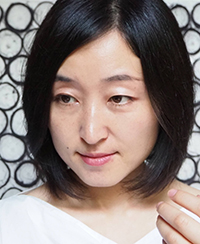
Five School of Computer Science faculty members recently earned National Science Foundation Faculty Early Career Development Program (CAREER) awards — the foundation's most prestigious for young faculty members.
The recent CAREER awards from the NSF total $2.84 million and will fund research projects ranging from robotics to algorithms. Award recipients include Lining Yao, assistant professor in the Human-Computer Interaction Institute (HCII); David Held, assistant professor in the Robotics Institute; Ioannis Gkioulekas, assistant professor in the Robotics Institute; Ameet Talwalkar, assistant professor in the Machine Learning Department; and Pravesh Kothari, assistant professor in the Computer Science Department
Lining Yao
Yao will use her $550,000 CAREER award to make interactive morphing materials more accessible and bolster their use across many disciplines. The work will tackle developing hardware and software toolkits that will enable others to use morphing materials and build out applications of the technology, which could include smart manufacturing, medical devices, prosthetics, wearable technology, clothing, graphic design and even food, Yao said.
"The most important thing to push is the vision that morphing matter can empower and embody computation and interactivity in the physical world," Yao said. "How can you develop a computation design framework and generalized methodology so everyone, such as a chef or a fashion designer, can design morphing materials for their fields?"
Yao directs the Morphing Matter Lab in the HCII. She came to CMU in 2017 after earning her Ph.D. and master's degree from the Massachusetts Institute of Technology's Media Lab.
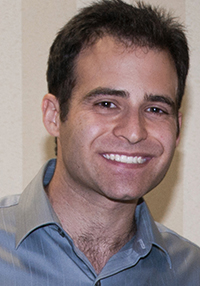
David Held
Held's nearly $600,000 CAREER award will support research into how robots interact with deformable objects, like ropes, cloths, vegetables and other items commonly found around the home. The project will allow Held and his Robots Perceiving and Doing (R-PAD) Lab to focus on tasks where objects that can change shape must be manipulated — like folding laundry, peeling vegetables, stirring stew or spreading pizza sauce on dough.
"A lot of robotic methods make assumptions that the world consists of rigid, consistent objects, such as items coming down the assembly line. I think a lot of the real world outside of a factory doesn't fit these assumptions," Held said. "Objects in the real world can change their shape. If robots can perform chores around the house, it can enable people who can't easily perform these things to live more independently, or it would enable someone's caretaker to spend more time interacting with them instead of with the laundry."
Before joining the CMU faculty in 2017, Held conducted post-doctoral research at U.C. Berkeley, completed his Ph.D. in in computer science at Stanford University, and earned his bachelor and master of science in mechanical engineering at Massachusetts Institute of Technology. Held received a Google Faculty Research Award in 2017.
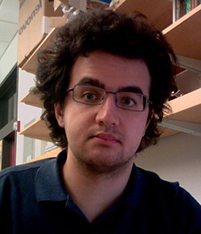
Ioannis Gkioulekas
Gkioulekas received a nearly $550,000 CAREER award to develop computational imaging systems that can be used at the microscopic level.
Current computational imaging systems — light sensors that selectively measure different components of incident light — work at a macroscopic level. Gkioulekas' project will investigate how these systems could function at the millimeter or micron level through a technique called interferometry, which uses the differences between two light waves bouncing back from different surfaces to create an image. Interferometric imaging systems could be used in the fabrication of small mechanical parts for aircrafts, for example, or for medical imagery like detecting tumors or blood analysis.
"This project has the potential for transformative impact," Gkioulekas said. "It could allow for better imaging millimeters below the skin, higher accuracy in manufacturing and faster material analysis, while creating a new point of convergence between computer vision, graphics, optics and imaging. This technique could potentially lead to new research directions and methodological approaches within and across these areas."
Gkioulekas became an assistant professor at CMU in 2017. He earned his Ph.D. from the School of Engineering and Applied Sciences at Harvard University, where he also completed post-doctoral research. Gkioulekas received a degree in electrical and computer engineering from the National Technical University of Athens, Greece. He received a CVPR Best Paper Award in 2019 and a Sloan Research Fellowship in 2020.
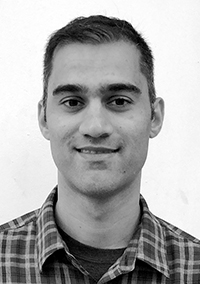
Ameet Talwalkar
Talwalkar will use his nearly $550,000 CAREER award to expand the use of deep learning.
Deep learning models are typically designed by hand over the course of years to perform a specific task, and leading models have largely been tailored for applications in natural language processing or image recognition. Talwalkar aims to help automate the design of new deep learning models for a diverse set of tasks in the physical and social sciences.
"People are excited about using deep learning to power new cutting-edge applications," Talwalkar said, adding that this sometimes leads to models being used for tasks they were not designed for. "Biologists and physicists, for instance, are already using models designed for computer vision and getting decent results, which is an indication that deep learning is a promising approach for these and potentially many other applications, and that there may also be significant room for improvement."
Talwalkar joined the CMU faculty in 2018. He received his Ph.D. and master's degree in computer science at the Courant Institute at New York University. He has earned the Machine Learning Research Award through Amazon Web Services, a Google Faculty Research Award, a Bloomberg Research Grant Award, an Okawa Research Grant, a Carnegie Bosch Institute Research Award, a JP Morgan Faculty Research Award and a Facebook Faculty Research Award. He is a co-founder and chief scientist at Determined AI.
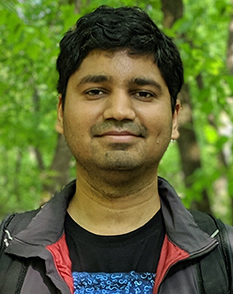
Pravesh Kothari
The NSF awarded Kothari a $600,000 CAREER award to develop a mathematical framework for algorithms that operate on statistical inputs. Such a theory will assist in designing and analyzing algorithms used in applications ranging from machine learning methods for image recognition to security analysis of cryptographic algorithms.
Algorithms are increasingly the tools of choice to analyze data, which has given a new sense of urgency to understanding fundamental questions such as how fast algorithms can learn from data and how much data is required for a given algorithmic task. Kothari's research aims to develop principled theoretical methods to answer these questions. This work will build on tools from theoretical machine learning and statistical physics, in addition to the theory of computation.
One major goal of the project is to investigate a mathematical phenomenon where an algorithm runs more quickly if given more data. Computer scientists call such results "information-computation trade-offs." Studying the limits of such trade-offs is important not only in machine learning but also in cryptography, where it's important to rule out the existence of fast algorithms that could compromise the security of a cryptographic system.
"In contrast to classical algorithms, there's often many more layers of mathematical structure in the study of algorithmic problems on statistical data," Kothari said. "The hope is to unite the various domain-specific approaches that dominate current investigations into a single framework for studying such problems."
Kothari came to CMU in 2019. Before that, he was a research instructor in computer science at Princeton University and the Institute for Advanced Study as a Schmidt fellow. Kothari earned his Ph.D. in computer science from the University of Texas at Austin and his bachelor of technology in electrical engineering from the Indian Institute of Technology in Kanpur, India.
Aaron Aupperlee | 412-268-9068 | aaupperlee@cmu.edu
